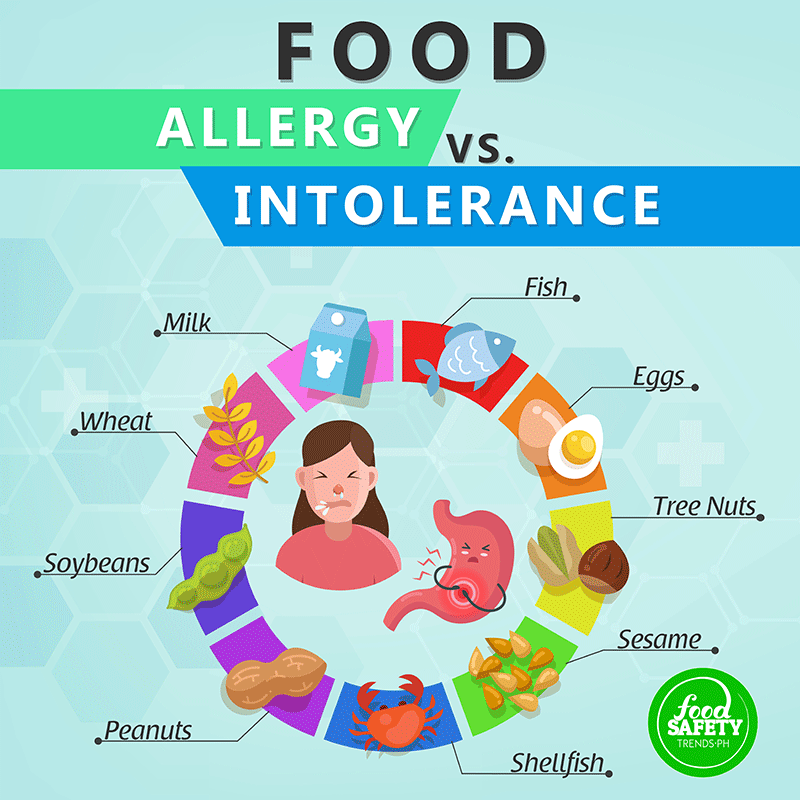What Is The Difference Between Food Allergies And Food Intolerances

Food Allergy Vs Food Intolerance What You Need To Know A food intolerance can cause some of the same signs and symptoms as a food allergy, so people often confuse the two. a true food allergy affects the immune system. even small amounts of the offending food can trigger a range of symptoms, which can be severe or life threatening. in contrast, a food intolerance often affects only the digestive. Understanding causes and symptoms. “symptoms of an allergy and an intolerance can appear similar, but one clear difference is how they affect your body,” jaeger says. “an allergy is an.

What S The Difference Between A Food Intolerance And A Food Allergy But it’s also possible that you have a food intolerance, celiac disease, or a food sensitivity. this is important, because some of the reactions can range from just annoying to life threatening. food intolerances. food intolerance refers mostly to the inability to process or digest certain foods. A differential diagnosis is the process of telling the difference between a food allergy, a food intolerance, and other illnesses. when you go to the doctor's office and say, "i think i have a. Gas, cramps, or bloating. heartburn. headaches. irritability or nervousness. a food allergy happens when your immune system mistakes something in food as harmful and attacks it. it can affect your. The difference between a food allergy and intolerance is how your body responds to a foreign trigger. the immune system causes an allergic reaction, while your digestive system causes an.

Food Allergy Or Intolerance What S The Difference Food Insight Gas, cramps, or bloating. heartburn. headaches. irritability or nervousness. a food allergy happens when your immune system mistakes something in food as harmful and attacks it. it can affect your. The difference between a food allergy and intolerance is how your body responds to a foreign trigger. the immune system causes an allergic reaction, while your digestive system causes an. Causes an allergic reaction, such as hives and swelling, shortness of breath or wheezing. brings on symptoms within minutes of consuming even a small amount of an allergy inducing food. may cause a severe, life threatening reaction called anaphylaxis. without an epinephrine treatment, this reaction can be fatal. A food allergy is a condition in which the body’s immune system overreacts to a specific food. this immune system response is triggered by a protein in the food, which the body mistakenly identifies as a threat. when the immune system recognizes this protein, it releases chemicals such as histamine, which cause symptoms such as hives.

Comments are closed.